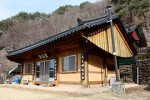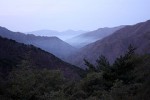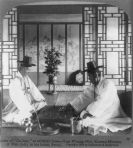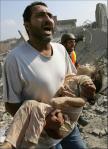Walking to work this morning I passed an elderly Catholic nun who I often see strolling along the street outside my home. Bracing against the cold and thinking about how hard it’s going to be to kick my coffee habit at the onset of winter my mind turned to the ubiquity of religion in South Korea.
So when I opened my computer I was surpirsed to see this in today’s IHT, a biological explanation for the Evolution of religion throughout human history. I found this passage particulary pertinent to the Korean context.
In natural selection, it is genes that enable their owners to leave more surviving progeny that become more common. The idea that natural selection can favor groups, instead of acting directly on individuals, is highly controversial. Though Darwin proposed the idea, the traditional view among biologists is that selection on individuals would stamp out altruistic behavior (the altruists who spent time helping others would leave fewer children of their own) far faster than group-level selection could favor it.
But group selection has recently gained two powerful champions, the biologists David Sloan Wilson and Edward O. Wilson, who argued that two special circumstances in recent human evolution would have given group selection much more of an edge than usual. One is the highly egalitarian nature of hunter-gatherer societies, which makes everyone behave alike and gives individual altruists a better chance of passing on their genes. The other is intense warfare between groups, which enhances group-level selection in favor of community-benefiting behaviors such as altruism and religion.
South Korea is no doubt a very group-oriented society, a fact that is often used to distinguish itself from its Western counterpart. Korea is also a very religious society, as seen in the proliferation of crosses that dot urban skylines in the South or the cult of personality in the North.
But does Korea’s history of war and invasion mean that Koreans are more “hard-wired” to believe? And more to the point, does it mean there is nothing more to these beliefs than simple programming?
Filed under: buddhism, history, Korean Society, religion | Tagged: buddhism, history, Korea, religion, spirituality | Leave a comment »


















